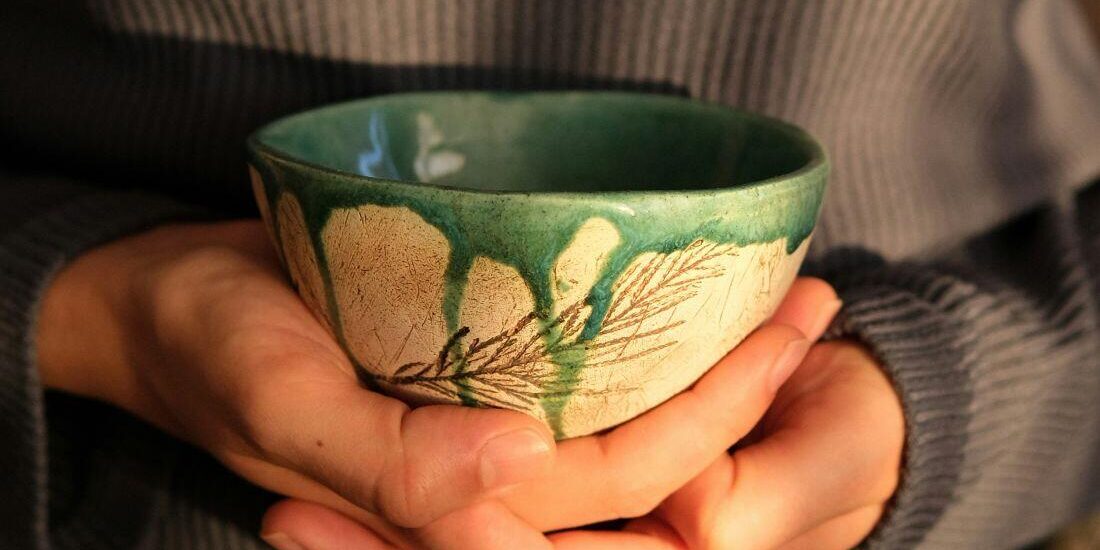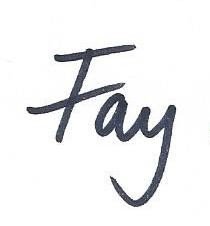These days when I listen deeply to another
I imagine holding a beautiful bowl in my lap.
Often I chose a large Tibetan singing bowl.
At other times only knotty wood will do.
I embrace the round receptacle
And simply hold it,
A safe container
That others can fill with their truth,
Even when the silence is awkward
Or the tears splashing over its rim leave me soaked.
At times I wish I could crawl in,
Because there are things
No one should bear alone.
I have to trust
That holding
Is enough.
At the end of the day,
I set the bowl down,
Returning it to something
Or someone
Who holds us all.
by Martha Postlethwaite
At times, we all walk at the cliff edges of pain. I first read this poem when feeling close to overwhelm at the pain of someone dear to me. It was a tonic. When I imagined listening to the pain in this way, receiving it in my ‘beautiful bowl’, it felt very tender, like honouring the pain as precious. This helped me to stay with it, rather than rejecting the pain to protect myself.
The power of listening and presence, rather than answers and advice, is something I’ve come to trust profoundly. I find that if I’m able to receive someone’s truth into the bowl of my listening, I learn more and more deeply what it is to be human. This is a great privilege. It is humbling and awakens the heart.
I still notice though, that I can have a habit of carrying the burden of pain, whether my own or a dear one’s, more than is necessary. I also hear a lot, especially of late, of how people are holding the pain in the world as a burden.
For me pain can get into my shoulders and jaw, chest and arms, showing up as tightness. The last stanza of the poem feels essential, but putting the bowl down is easier said than done. I imagine putting it down and there is a whisp of lightness, but the tightness is still there. Perhaps those who feel this, like me, are going to need to commit to a long, slow road of teaching our body/mind/heart to put down the burdens. So, this is a stanza to take with me as a mantra, to return to in my practice and to nurture as aspiration.
I’ll close with a little quote which I think is so very poignant. It points to the essential goodness of human beings, that we often miss if we forget ‘the bowl’. It is from Martha Postlethwaite’s book that contains the above poem Addiction and Recovery – A Spiritual Pilgrimage:
‘Once a person tells you their story, it is hard to see anything other than beauty.’
Ps. If you’d like to learn more about how to bring poetry into your mindfulness and compassion practice, take mantras from poetry to live out in your life and absorb the wisdom in both ancient and modern poetry, come along to our Mindfulness meets Mystical Poetry course beginning at the end of October.
Photo by Esra Afşar on Unsplash



